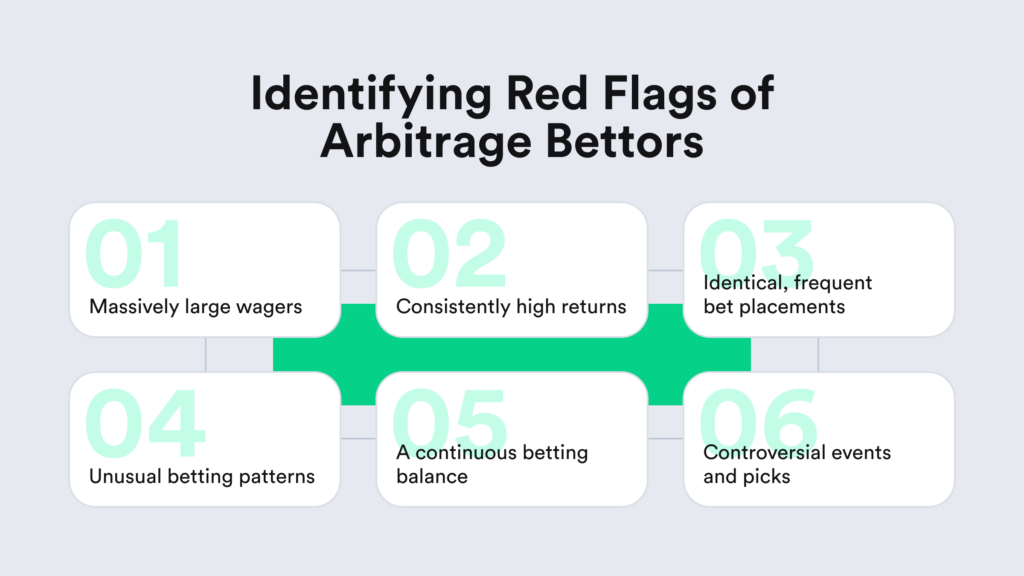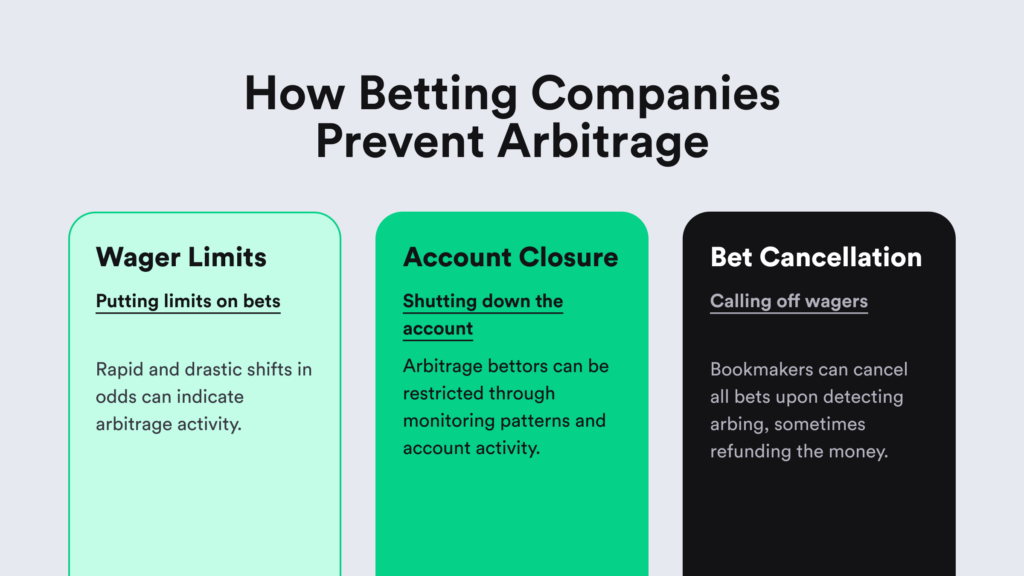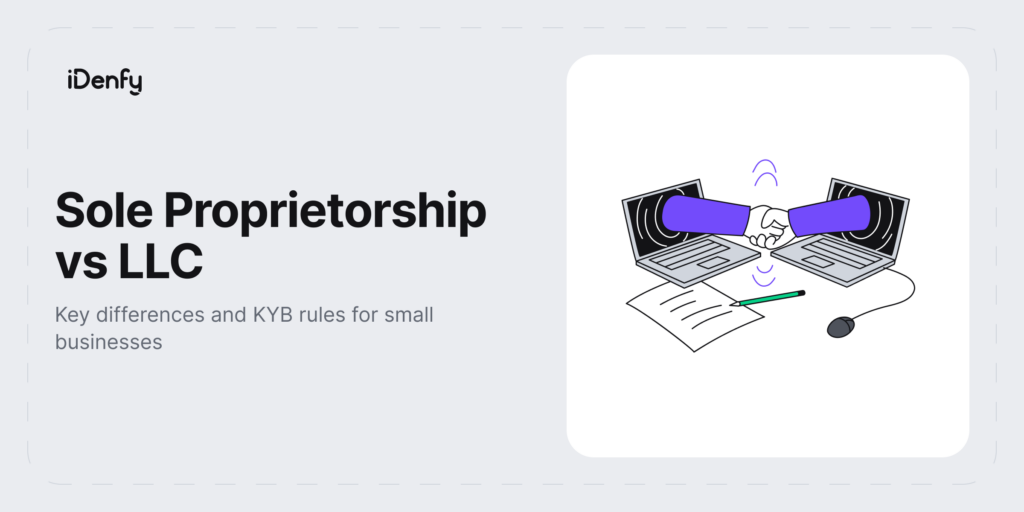Imagine watching a tennis match and placing two bets on each player to win. Or in football — one on a draw and the others on each team to win. This is exactly what arbitrage in sports betting is. Barbers are known to place bets on different companies or within the same betting company to gamble and cash out the profit strategically.
To execute their plans correctly, bettors capitalize on discrepancies in odds offered by various bookmakers and betting platforms. Essentially, arbers use their bets on both potential wins and losses, and, this way, they make an overall profit regardless of the actual result. Often, success in arbing relies on automation designed for arbitrage sports betting.
So, how to detect arbitrage and not lose profit? We discuss the focal points below.
What is Arbitrage Betting?
Arbitrage betting, also known as arbing, is a gambling tactic where bettors place simultaneous bets on all possible outcomes of a sporting event, ensuring a guaranteed profit no matter the outcome. In sports, arbing involves exploiting differences in odds available for a sports event.

Betters who use arbitrage betting are called “arbers.” Some of them use bots for efficient placement of multiple small wagers while aiming to stay under the radar to evade bookmakers’ attention. Arbers capitalize on odds variations across different bookmakers and sites, which is why automation helps in this sense.
Besides standard arbitrage betting, other common strategies include:
- Bonus hunting arbitrage. This involves profiting from different bonus offers across various betting platforms. It’s a common occurrence when a player first opens their account with a bookmaker. They often give them a bonus if they deposit a minimum fixed amount.
- Cross-market arbitrage. Such bets are a mix of varying markets. The goal is to take advantage of differences in bookmaker pricing by using two or more markets.
The difference between odds is an “arb.” Bookmakers assert that arbitrage betting risks their operations. That’s why betting companies actively work to detect it and try to establish effective limits that minimize arbitrage.
Arbitrage Betting Examples
Arbitrage betting is very popular in the horse racing industry due to the frequent changes in betting prices. These significant fluctuations offer greater profit potential for arbers. By placing simultaneous bets on the same horse with a bookmaker and against it, bettors can quickly secure profits. The markets for football, basketball, and tennis also see considerable activity in arbitrage betting.
For example, tennis matches with only two possible outcomes — Player 1 wins or Player 2 wins. Imagine a final match between Roger Federer and Rafael Nadal in the French Open. Nadal, favored for his skills, is more likely to win. However, various bookmakers offer differing opinions, each incorporating their own profit margin into the odds. By placing a total bet of, let’s say, $400 across both bookmakers, betters secure a win, ensuring at least a minimum profit.
How Does Sports Betting Arbitrage Work?
Here’s an illustration of a possible scenario showing how sports betting arbitrage works:
- Let’s say there’s a basketball game between Team A and Team B.
- One betting site offers odds of 2/1 for Team A to win, while another site offers odds of 3/1 for Team B to win.
- The bettor calculates the necessary wagers.
- In this case, they might bet $100 on Team A and $66.67 on Team B, totaling $166.67.
- If Team A wins, they cash in $300, resulting in a $133.33 profit.
- If Team B wins, they cash in $266.67, resulting in a $100 profit.
Players must continuously track the odds offered by one or more bookmakers and assess potential earnings using manual or automated methods. In this case, the bettor is assured of making a profit regardless of the game’s outcome because of the bookmaker’s inefficient odds.
Arbitrage Betting Bots
Many betters use bots to search for betting chances on their behalf. Bots are legal in arbing but they are viewed as an unethical practice since certain games use other players’ money as well.
Bots rely on automation technology that scours numerous bookmakers for differing odds that could yield profits. Since arbitrage bettors must act quickly to capitalize on these odds, the program typically updates every minute. In some cases, when bookmakers receive significant bets on a lesser-known sporting event, they can suspend betting on purpose.
When Do Arbitrage Opportunities Occur?
Arbitrage opportunities arise when bookmakers calculate probabilities and make mistakes. For example, if they:
- Set odds too high due to the competitive betting market and wanting to stay relevant.
- Do not adjust odds in real-time for live events like basketball or tennis, where every second matters since the odds can change very quickly.
In general, profitable opportunities can occur frequently, sometimes hundreds of times per day. Betters often play during the weekends and, especially, during major sporting events. Arbitrage bets are good for win-or-lose scenarios where the outcome is clear. For example, a win or no-win outcome.
Is Sports Betting Arbitrage Legal?
Although arbitrage betting is legal, focusing solely on exploiting bookmaker promotions and seeking the best odds can lead to limitations. It’s legal in countries where gambling and betting are allowed. To mitigate arbitrage, gambling platforms often take precautionary measures such as not allowing multiple accounts or a bunch of bets on the same event.

Bookmakers recognize sophisticated betting methods that consistently generate positive expected value, indicating potential long-term wins. Contrary to popular belief, arbitrage betting isn’t a quick path to wealth for most people. It requires skills and time to know arbitrage opportunities, and having some sort of capital is necessary to realize significant returns.
How Do Arbers Avoid Getting Caught?
Betting companies use special techniques and automated programs to detect arbers. However, it’s still a hassle to detect skilled arbers who are trying to avoid detection. For example, they use their own tactics when indulging in sports betting arbitrage, such as:
- Rounding their numbers. Instead of betting $678.22, they round their bet to $700 to avoid suspicion.
- Sticking to familiar markets. This helps them avoid betting large sums on obscure markets like Estonian Basketball if they’re in Australia.
- Keeping consistent bet sizes. If the arber usually bets $50 and suddenly starts betting amounts like $10000, it raises suspicion.
How Do Betting Companies Respond to Arbers?
It depends on the bookmaker and how they react to arbing, as every platform is different. That’s why not all bookmakers try to stop arbers. Some even support it because it enhances odds and improves their modeling techniques.

Most betting companies view arbers as unwanted guests, who can receive penalties. For example:
- Wager limits. A bookmaker can limit the player’s ability to raise bets or limit them to minimum amounts.In general, a wagering limit is the amount the player can bet within a specific timeframe, like a day, week, or month.
- Account closure. This happens when the bookmaker closes the arber’s account. If there are funds in the account, the bookmaker typically refunds them or confiscates the money. This blacklisting is the most critical measure to prevent arbitrage betting.
- Bet cancellation. A bookmaker can cancel bets placed on exceptionally high odds. This also happens when the bookmaker makes a clear error, like reversing the odds. Typically, any funds in the arber’s account are refunded.
Price changes can put betters at risk. If they act fast, betters can secure a sure profit. But if they make a mistake or the odds change before they bet, betters might lose. That said, betting companies implement such policies to secure their operations. Given that arbing can negatively affect the profitability of such businesses, these precautions are vital.
Bookies and Arbing
Bookies are another slang term for bookmakers. They have the ability to detect if the player bets against themselves. Bookies are and have strategies to identify arbing. Bookmakers compare their odds with other bookmakers to ensure consistency.
They also closely monitor betting patterns and any unusual behavior. This way, bookies can pinpoint any irregularities or attempts to manipulate the system.
What Signs Indicate Arbitrage for Betting Platforms?
Betting platforms have security teams that are responsible for detecting sports betting arbitrage. They use specialized AI-powered software to identify wrongdoing based on certain signs:
- Consistent betting. Repeatedly placing identical wagers.
- Large wagers. Placing extremely high stakes, nearing the limit.
- Frequent withdrawals. Continuously withdrawing funds.
- Unusual events. Betting on uncommon outcomes.
- Suspicious account activity. Maintaining a steady balance.
Standard monitoring practices help sports betting businesses spot these signs and prevent unwanted arbitrage activity. Of course, proper anti-money laundering (AML) and Know Your Customer (KYC) measures set the grounds for a platform’s success, especially in high-risk industries, such as iGaming, gambling and casinos, sports betting, etc.
And we have good news! At iDenfy, we carry all these RegTech tools to help you prevent fraud and stay compliant through custom-tailored AML screening solutions, as well as identity verification for both individuals and businesses. Still have doubts? Let’s talk.




